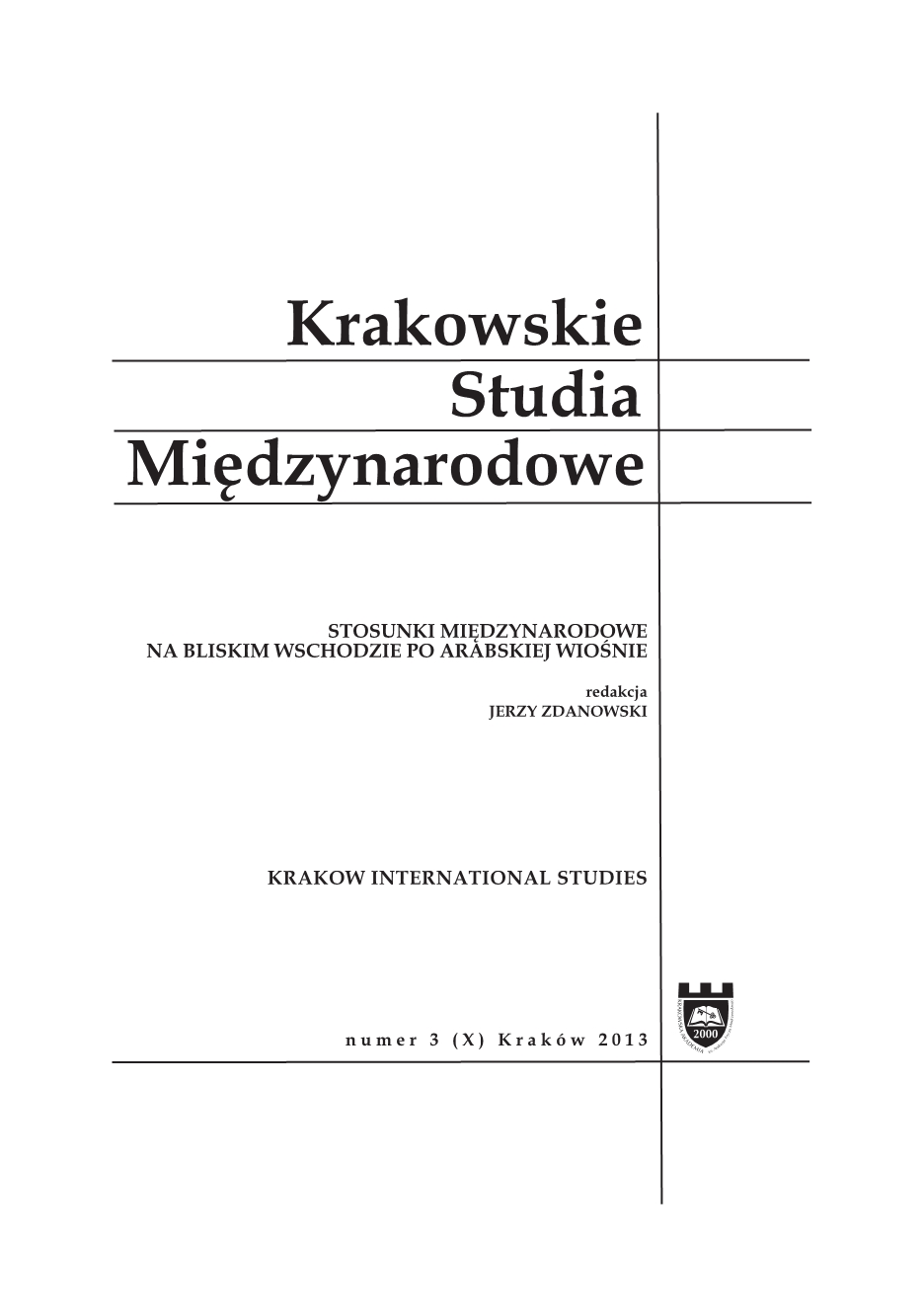
We kindly inform you that, as long as the subject affiliation of our 300.000+ articles is in progress, you might get unsufficient or no results on your third level or second level search. In this case, please broaden your search criteria.

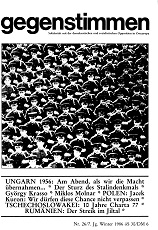
A conversation with Andor Kovács, President of the National Committee in Csurgó district
More...
An interview with the eyewitness and participant István Vizinczey
More...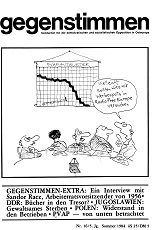
Beunruhigt über die Repression und besonders die Festnahme der 28 Personen, die in privatem Rahmen über die Beziehungen zwischen den Nationalitäten im Jugoslawien der Zwischenkriegszeit diskutiert haben, ebenso wie die Festnahme des Anwalts Srdja Popovic, haben Mihailo Markovic, Dobrica Cosic, Ljubomir Tadic und Zagorka Golubovic einen offenen Brief an das Staatspräsidium der Sozialistischen Föderativen Republik Jugoslawien (SFRJ) und das Präsidium der Sozialistischen Republik Serbiens geschrieben.
More...
Eine Neubewertung der Ereignisse der ungarischen Revolution 1956 wird notwendig sein: Die traditionellen Chroniken beschränken sich auf eine reine Darstellung der Ereignisse vom 25. Oktober bis zum 4. November. Bestenfalls die Vorgeschichte des Aufstandes ist ihnen noch einer Erwähnung wert, nach den wenigen Tagen des militärischen Widerstandes im Gefolge der zweiten Sowjetintervention in den Morgenstunden des 4. November brechen sie ab.
More...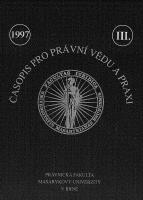
The article discusses the complex phenomenon of human aggression, which encompasses various forms such as physical, verbal, and symbolic attacks. It highlights the increase in violent crimes in Prague post-revolution and the role of social factors like group values, population density, and material scarcity in fostering aggression. The text also examines the impact of frustration and deprivation on aggressive behavior, noting that negative self-perception and social insecurity can lead to hostility. The influence of media in shaping public attitudes towards aggression and crime, particularly against minority groups, is also addressed. The article underscores the importance of family environment and media regulation in mitigating aggressive tendencies. It concludes by emphasizing the need for comprehensive strategies to prevent violence, including legislative measures and community support programs.
More...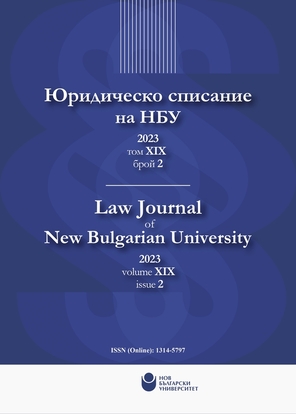
This publication is part of a larger study of crimes against the person and property in socialist Bulgaria (1944–1989). It examines their general detectability as a whole, as well as separately the four most significant among them – thefts of public and private property, robbery, rapes and intentional homicides. The reflection of a number of social, economic and political factors that accompany the process is also taken into account.
More...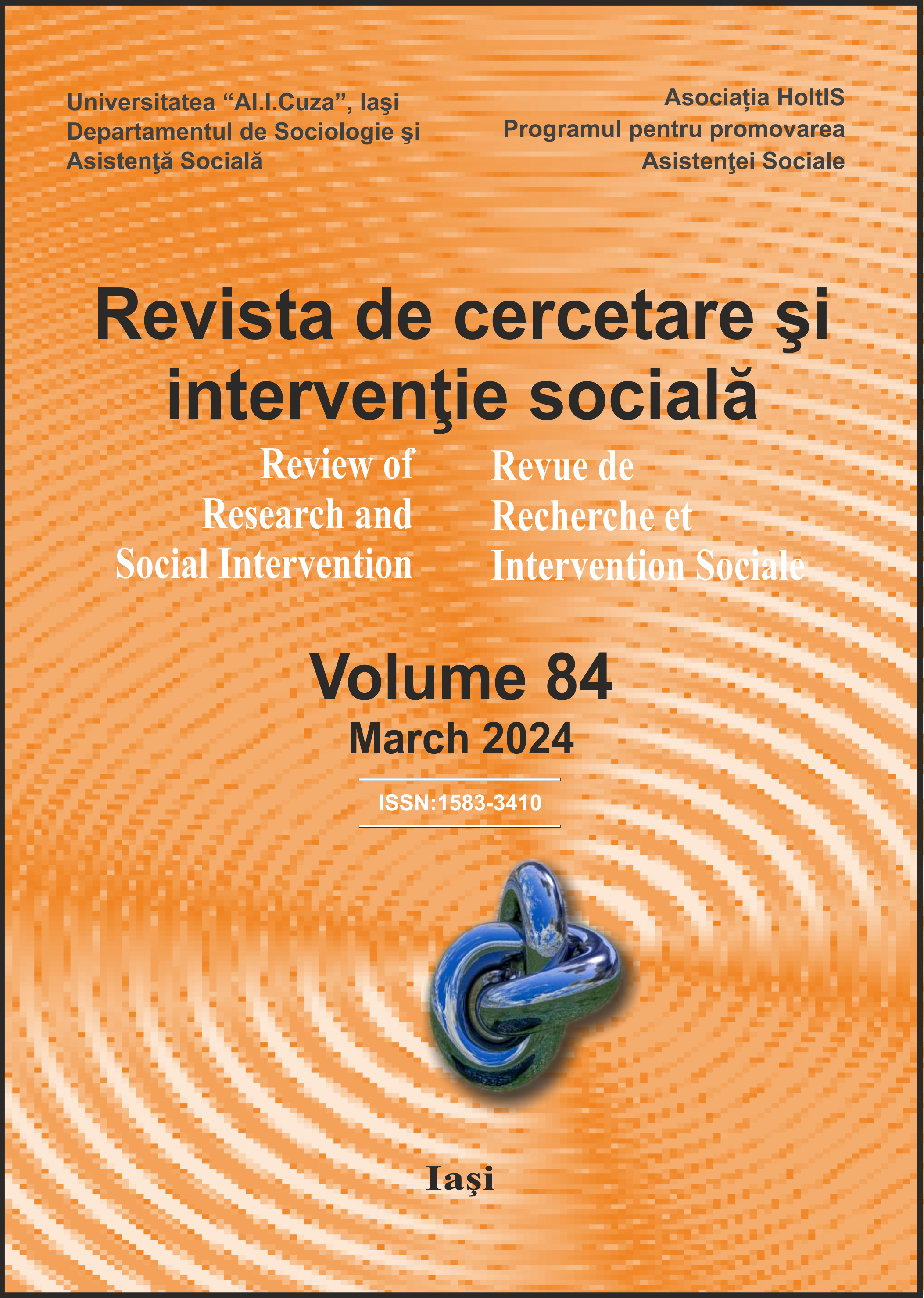
In the context of war, providing timely psychological support is crucial for internally displaced persons in Ukraine and emigrants abroad. This kind of assistance is considered a priority for individuals who have recently experienced traumatic events and are in a vulnerable psychological state. The article is focused on identifying mental health problems among individuals who have been temporarily displaced or emigrated abroad during the war. It aims to improve the toolkit for providing psychological support to these populations. The study analyses the specific challenges associated with providing psychological support to these individuals. Forced resettlement to another region or country, combined with the prolonged impact of information stress, air raids, and the loss of a normal way of life, has been shown to contribute to the development of psychological disorders at both emotional and behavioural levels. The article focuses on the specificity of manifestations of prolonged stress, which can take the form of severe anxiety and excessive worry, as well as unpredictable outbursts of anger. It is widely accepted that physical stress can cause symptoms such as muscle pain, chronic fatigue, rapid heartbeat, and increased irritability. The physical aspects of stress, when combined, can have a detrimental effect on a person's personality and negatively impact their psychological well-being. This paper defines the complexity levels of mental disorders and outlines their factoriality. Factors such as age, involvement in the emergency (as a witness, participant, or directly affected), personal life experience, psychological health, and interpersonal relationships are considered. A conceptual approach is proposed for providing first psychological aid to the studied population categories. This includes providing emotional, physical, and social support to the affected individual, enhancing their sense of security. The practical significance of the research results lies in their potential application in the development, improvement, and implementation of psychological support programs for internally displaced persons in Ukraine and emigrants abroad in wartime conditions.
More...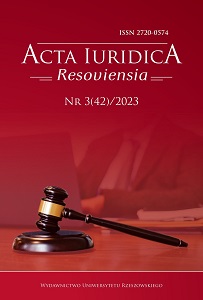
Patostreaming is understood as publishing in the Internet content that infringe on social rules in order to gain popularity in the Internet or money. Behaviors of patostreamers not only infringe on social norms, but also may be qualified as crimes or misdemeanors. Due to the scope of the problematic aspects in the paper the attention will be paid just to patostreaming as crimes. The question will be considered with attention to aspects of demoralization of minor viewers, having regard to the fact that patostreaming is the most popular among young people, teenagers. Therefore, due to dynamic development of patostreaming consider to introduce the type of illicit act: demoralization of minor, however different than e.g. in Azerbaijan – precising statutory marks in order to fit in to the specific of that phenomenon specifically.
More...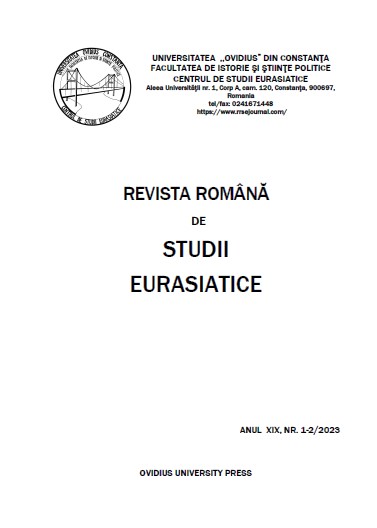
The word "war” carries a strong nominal charge in several types of wars and several ways of waging them: war of position, economic war, atomic war, cold war, diffuse war, war against a pandemic, etc. This article takes us through a brief history of the recent war in images, as it has been taken up by social media, through several characters who have turned their current (and) current activity into a weapon of war: a war of images and social media. The approximation of what is personal or identity in social media and the politics of war represents a major shift brought about by recent, bloody events. About the self and politics, about images and the power of messaging, about language in the service of war on social media, a search for personal as well as national identity, these are the new issues brought to the agenda of the day through social media. The President of Ukraine himself, Volodymyr Zelenskyy, has started using social media relentlessly to get his anti-Russian message out to the world. This foray into social media, politics, identity, and language is one of the weapons of war and it should not be avoided, on the contrary, it should be seen, supported, and recorded in history.
More...
In the new international context of the conflicts that broke out in Ukraine and the Gaza Strip, we can speak of a very sensitive economic environment. Analysts described the threats of global trade disruption and China's potential economic opportunities and supremacy, whose influence in the Middle East has grown considerably over the past 15 years. The reconfiguration of American policy and the shift of the United States' center of gravity from the Indo-Pacific area due to the war generated by the Russian invasion has left uncovered a critical area in the commercial flows that ensure global trade. The triggered humanitarian crisis and the thousands of civilian victims in Gaza represent opportunities for China and Russia to blame American policies on the Middle East for the instability there. The article presents the main vulnerabilities that the two conflicts create in the global economy and how the disruption of trade flows would generate major crises globally.
More...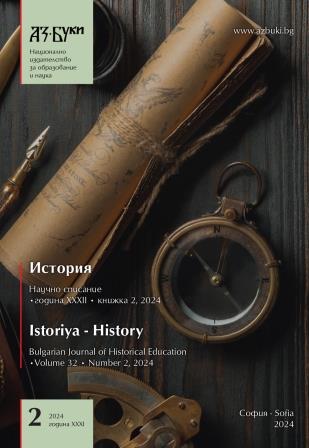
The terrorist attack by Hamas against Israel on October 7, 2023 brought to the fore the issue of Israeli state security policy. This article answers the question of whether Israel has a national security doctrine and how it is formulated. The emphasis falls on the role of the Balkans as a strategic partner for Israel in achieving its broad political goals and ensuring the security of Israeli citizens and Jews abroad.
More...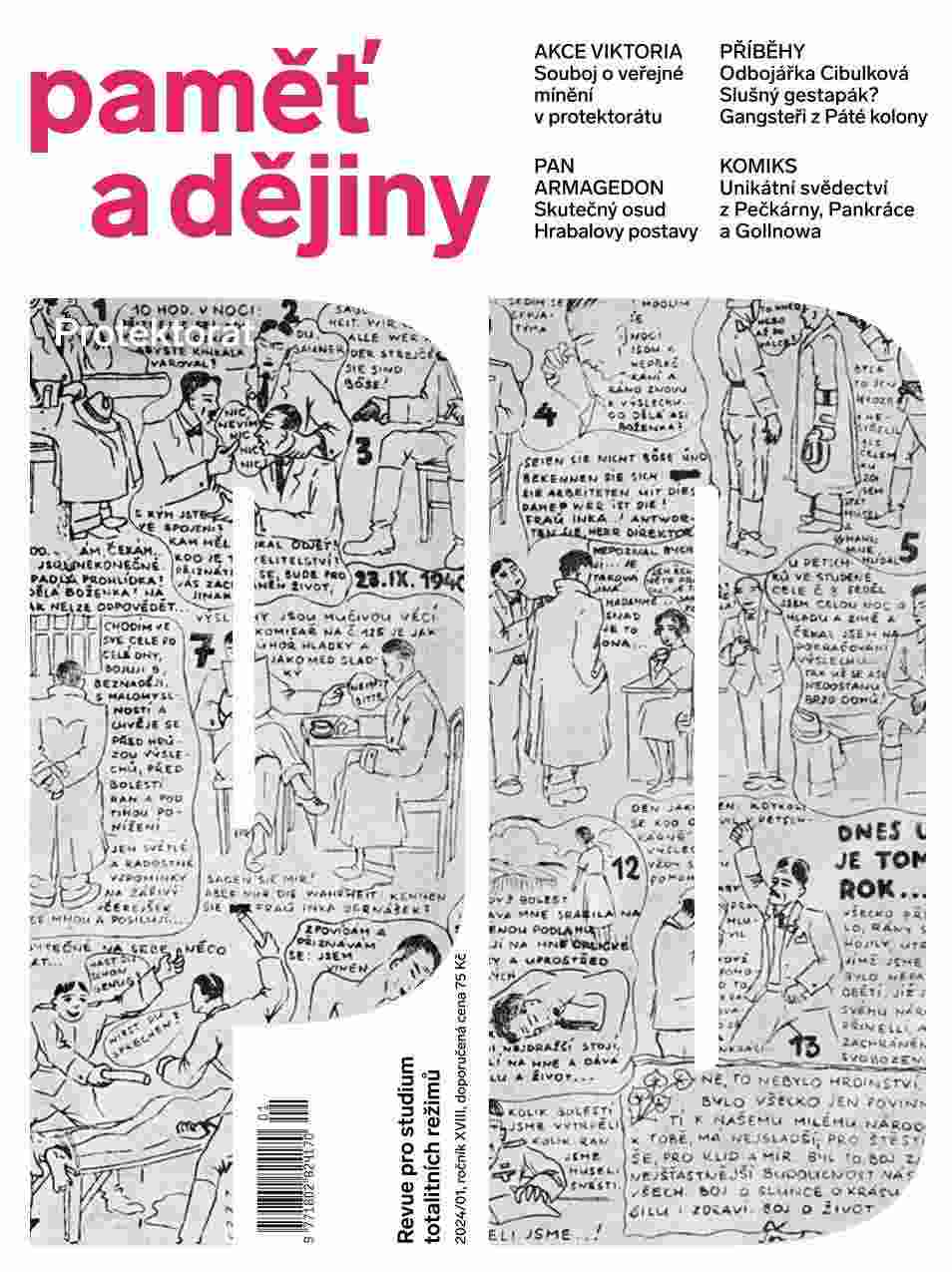
The article discusses the controversial history of the Czech resistance group "Pátá kolona" during World War II. Initially formed by Václav Engelmüller and other students in 1939, the group aimed to fight against the Nazi occupation. However, their activities often resembled those of gangsters rather than freedom fighters. They engaged in various criminal acts, including theft and murder, to fund their resistance efforts. The group's moral decline is highlighted by the murder of Jaroslav Sinkule, a member suspected of being a Gestapo informant. Despite their initial resistance efforts, the group's actions eventually drew the attention of the Gestapo, leading to arrests and the group's dissolution. The article also touches on the post-war lives of the surviving members, who faced various fates, including collaboration with the Gestapo to save their lives.
More...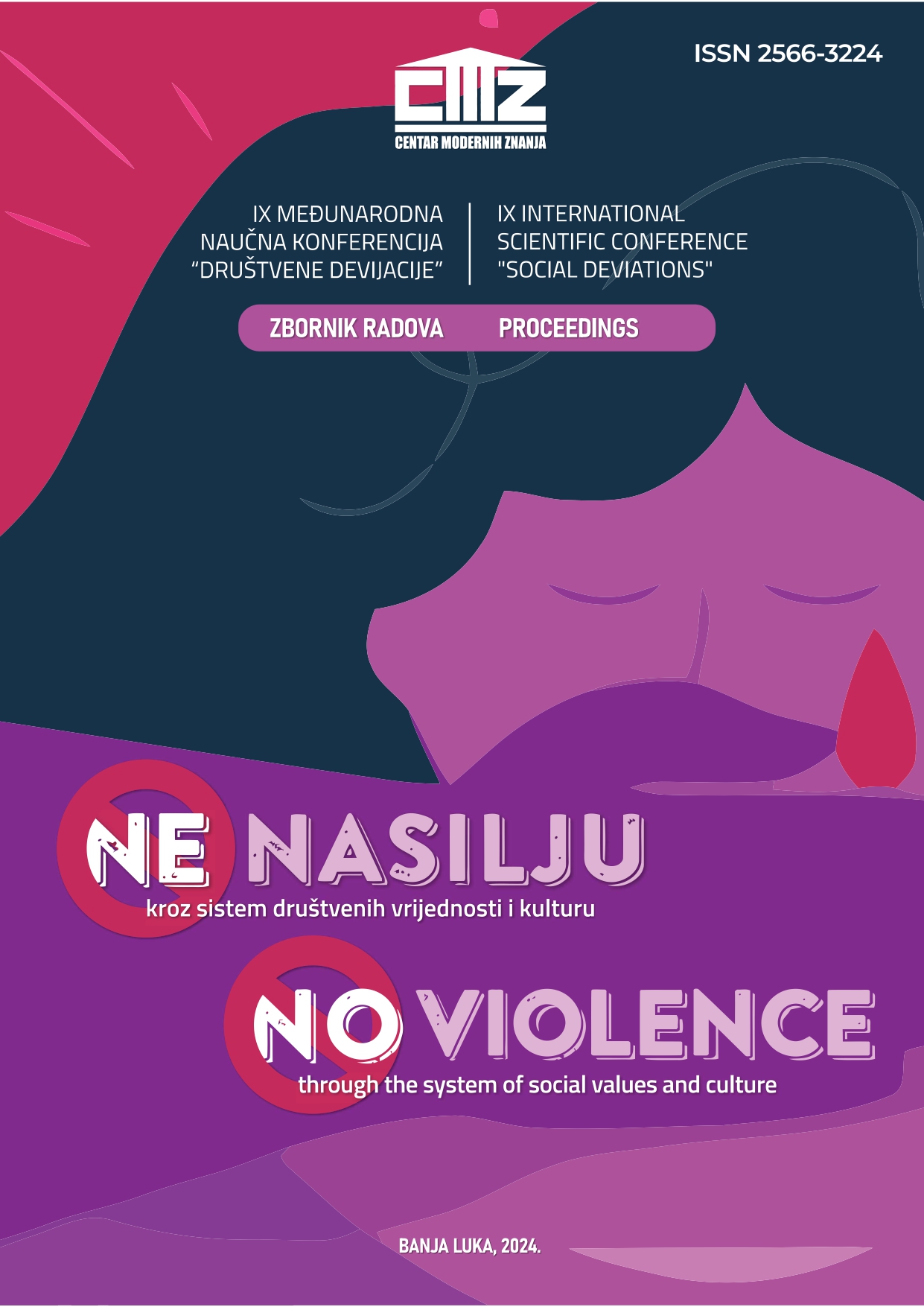
Femicide is the most severe form of gender-based violence. According to UNODC data, 137women in the world are killed every day. The adoption of the Istanbul Convention (Council of Europe Convention on Preventing and Combating Violence against Women and Domestic Violence) increased social, political and public interest and increased awareness of femicide and consequently (in a smaller number of European countries) resulted in the introduction of a special criminal offense in criminal laws or passing special laws aimed at protecting victims and preventing femicide. Despite the increased activist and scientific-professional interest in this problem, there is still no uniformly accepted definition of femicide, which prevents the implementation of national and international comparative studies that could serve as a scientific basis in the development of policies, strategies and activities aimed at combating and preventing this problem. In March 2024, Croatia adopted amendments to the Criminal Code which, among other things, introduce the new criminal offense of "aggravated murder of a female person", which represents the criminal definition of femicide. The aim of this paper is to present the development of the Croatian legal definition of femicide, from the first presentation of the proposal to the final version, as well as the alignment of the legal definition with current definitions. An additional goal of the work refers to the analysis of the public debate on the proposal to introduce femicide in Croatia, by analyzing the comments and responses to the comments in the framework of the conducted e-counseling.
More...
Various disputes may arise during the educational process, affecting teaching, activities, and the overall well-being of youth. The competitive society in which children grow up does not provide sufficient opportunities to practice and build collaboration. Cooperative or collaboration exercises allow youngsters to work together to accomplish a goal. It is believed that it is never too early to promote collaboration and conflict resolution abilities in students, as conflict resolution methods are an indicator of an individual's social competency. Adopted forms of conduct, particularly within them, are required for the individual's personal involvement in community activities and contact with other members. As can be seen, cooperative activity is vital for social elements of conduct, because being prepared for work activities with others benefits everyone. When discussing cooperation and conflict resolution, it is important to note that productive conflict resolution processes are akin to cooperative procedures, whilst destructive processes are similar to competitive processes. Given the foregoing, the goal of this paper was to determine whether student cooperativeness or cooperation in school is a significant predictor of successful conflict management and nonviolent behavior, whereas the main problem of the work is to investigate the relationship between cooperativeness, conflict management, and violent behavior. The study included students in the first, second, third, and fourth grades of Tuzla Canton high schools. This study involved 823 students. The subjects participated in the study ranged in age from 16 to 19 years. There are 403 male respondents and 420 female respondents, resulting in a percentage ratio of 48.96%:51.04%. The findings indicate that cooperativeness is a strong predictor of conflict management styles. Cooperativeness is associated with lower levels of violent conduct. There was a considerable variation in cooperativeness across genders. The aforementioned results that it is critical to encourage collaboration in the educational process since it aids in the achievement of goals, fosters the skills required for social behavior, which is necessary for nonviolent conflict resolution, and promotes nonviolent behavior among students in school.
More...
Violence is a complex concept that can occur in different forms and contexts. It is defined as the use of physical, emotional, psychological or verbal force against another person or group. Violence is a form of aggressive behavior that occurs between children or adolescents in the same age or age group and can affect the victim in the form of physical abuse, emotional problems, social isolation and other negative consequences. Violence is often perpetrated through the Internet or digital technologies; this is known as online violence or cyberbullying. Because of the serious consequences of the use of top-level violence, it is important to establish preventive measures to tackle it, because it is a serious and significant problem that requires an integrated approach in society, school and the community. The youth novel "Orfejeva lira", which, among other themes such as intergenerational relations and the nature of construction and the help of sport in building character, also deals with the subject of violence at school, can help to combat violence in a number of ways: Awareness raising; empathic understanding; identification; building courage; fostering dialogue; learning conflict resolution; autonomy and the development of self-reflective intelligence that encourages thinking with one's own mind. Together, these factors can contribute to creating a safer, more respectful school environment and reducing the incidence of bullying. According to the latest data in Slovenia, more than 30% of young people are victims of violence. This means that we must do everything we can to prevent peer violence.
More...
Author believes that this book is about exploring what happens to a city, a society, the Soviet system when subjected to extreme shock, such as hunger, starvation and siege. Jeffrey Hass looks at how the Soviet system was “tested” by these events, making the case that the Blockade is a “better case” than Stalingrad or the defense of Moscow for understanding the war, duress and survival. The book discusses cannibalism as a prism into the book’s approach and findings. It looks at the breaking of the severe taboo and how people were torn between survival and sympathy, egoism and altruism, cooperation and opportunism in the midst of the “dictatorship of the stomach” and “food psychosis”. It shows how consuming human flesh was seen as the extreme on a continuum of norm-breaking in terms of what was considered food. Jeffrey Hass explores the authorities’ handling of cases of cannibalism, the prevalence and punishment of the phenomenon, as well as the symbolic dimensions of the transgression. It looks at the voices of people who violated the taboo, and the mercy they asked for. The book is ultimately about the heightened agency people were forced to take in the face of death, and the tragic decisions they made in order to survive.
More...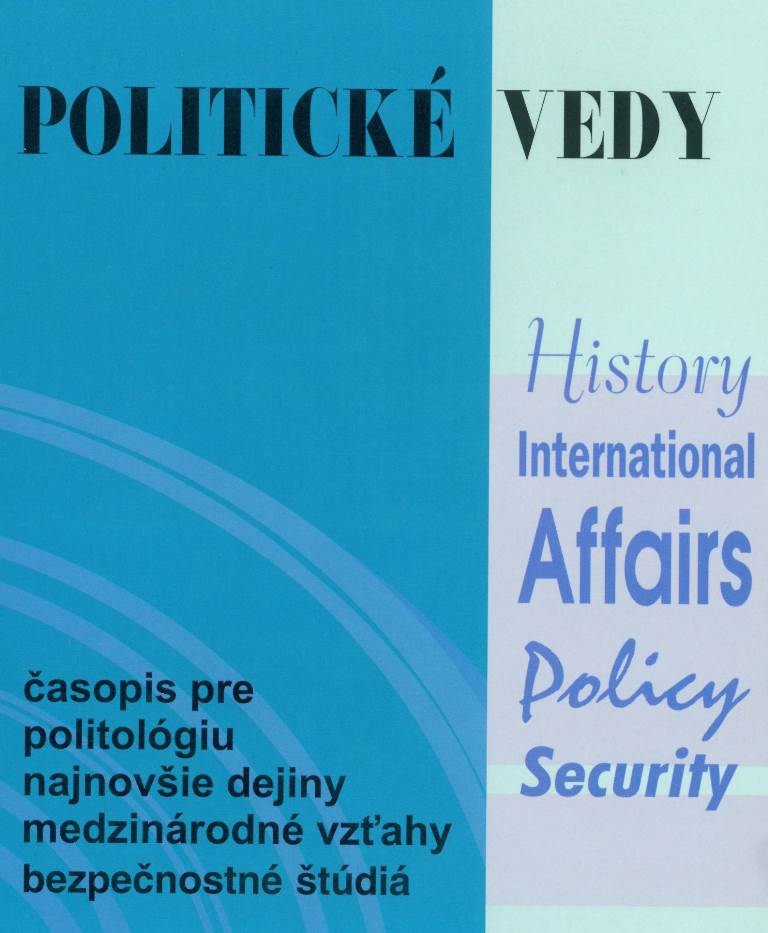
Terrorism has been often considered to be a subjective label rather than a distinct form of violence. Discourse has played an important role in creating the threat of terrorism, as well as in the legitimisation of counterterrorism level. The importance of studying discourse can thus no longer be denied. This article analysed the character of official discourse on terrorism delivered by Australian prime ministers between 9/11 and the end of 2019, since Australia is one of the countries involved in the War on Terror. The author used the NVivo software to analyse speeches delivered by John Howard, Kevin Rudd, Julia Gillard, Tony Abbott, Scott Morrison, and Malcolm Turnbull. She applies Norman Fairclough’s three-level Critical Discourse Analysis to study the character of the speeches, positive and negative emotions which were invoked by the speeches and the connections that were drawn to other discourses. She also analyses the context in which the speeches were delivered as well as the adopted counterterrorism measures that were legitimized in the speeches. The results of the analysis demonstrated that all Australian prime ministers used the terrorism label to some extent, however each of them delivered speeches on terrorism that had a different character. All of the analysed prime ministers, with the exception of Kevin Rudd, also presented emotional discourse on terrorism. The article demonstrates how is the terrorism label portrayed differently by each speaker, and that not all discourse on terrorism has to necessarily be emotional.
More...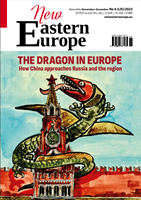
The story of violent clashes that broke out in Sibiu in Romania during late December 1989 is one that many have forgotten since the revolution and regime change. Tudor Giurgiu’s latest film Libertate revisits that turbulent event in Romania. The film not only acts as a reminder of the ruthless terror and chaos of the time but also as a chance for Romanians to reassess their own history.
More...
The history of the Soviet Union, its national policy towards different ethnicities, and especially forceful resettlements are generally attractive and popular topics for research. This paper, however, focuses on the lesser-known cases within the broader contexts of the exiles, examining specifically the forceful resettlement experiences of the Khevsurs, Georgian mountaineers, to the lowlands of Georgia, and the Chechen-Ingush peoples, who were deported to the Central Asian republics of Kazakhstan and Kyrgyzstan. While the official Soviet discourse on resettlement was predominantly propagandistic, this research aims to shed light on the unofficial histories and untold stories from different generations of the Khevsurs and Chechen-Ingushs. By analysing oral histories, this research presents experiences of exile of these groups, unveiling their complex generational memories of trauma and changes in life.
More...